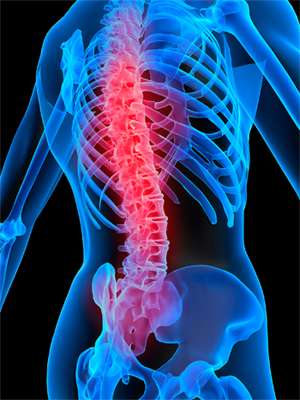Spinal Cord Injury Fertility
Find your care
We provide men’s health care in one convenient clinic. To learn more about our services, call .
Male Fertility After a Spinal Cord Injury
A spinal cord injury is a devastating event in a man’s life. Many spinal cord injured men are told that they are infertile because of their injury. This is usually not true. Men are often unable to ejaculate after spinal cord injury but their sperm production is usually normal. The physicians at The Men's Clinic at UCLA can determine the best way to retrieve sperm from a spinal cord injured man and use the sperm for intra-uterine insemination (IUI) or invitro fertilization (IVF).
Overview

Following a spinal cord injury, it is common for men to experience changes in their sexual function and fertility. These changes may include:
- Changes in erection and ejaculation function including erectile dysfunction;
- Decreased or absent sensation and movement below the level of injury;
- Heightened sensitivity in areas above the level of injury, especially in men with mid-thoracic and above injuries.
These changes may result in complete infertility or impaired fertility. However, the symptoms and degree of infertility can vary depending on the type and severity of the spinal cord injury.
Diagnosis
To diagnose infertility following a spinal cord injury, Dr. Jesse Mills, UCLA Urologist, will evaluate the spinal cord level to determine the various fertility options. He will perform a full laboratory evaluation focusing on fertility hormones. Depending on the level of injury, Dr. Mills may perform penile vibratory stimulation to see if the man is able to ejaculate to evaluate sperm quality.
Treatment
Men with spinal cord injuries and inability to ejaculate have two main pathways to biologic fatherhood. If a man is able to ejaculate with penile vibratory stimulation (PVS), he may be able to perform this procedure at home and the couple can attempt home insemination which Dr. Mills and his staff can teach the couple. Ejaculated sperm can also be used for intrauterine insemination (IUI) which is usually done in the partner’s OB/GYN office. If a man is unable to ejaculate spontaneously or with PVS, or if the sperm quantity or quality is not sufficient for insemination, Dr. Mills will likely suggest proceeding with sperm retrieval to use for invitro fertilization (IVF.)
Though an erection is not necessary for fertility, treating erectile dysfunction allows couples to try for natural conception, which can occur in up to 10 percent of cases in which the male partner has a spinal cord injury. Treatments for erectile dysfunction include prescription medication such as Viagra, Levitra and Cialis, self-injected medication, urethral suppositories or vacuum erection devices. In more severe cases, surgical treatments may also be an option. A penile implant (link to penile implant content once posted) is a good surgical option for men who do not respond to conservative therapy.
Many men with spinal cord injuries are unable to ejaculate and therefore require medical assistance to procure sperm for fertility purposes. Some methods assist ejaculation to obtain semen, while others bypass ejaculation and retrieve sperm surgically. For more difficult cases, surgical sperm retrieval is the best option. At The Men's Clinic at UCLA, Dr. Mills specializes in two techniques: Microsurgical Epididymis Sperm Aspiration (MESA) and Testicular Sperm Extraction (TESE).
- Microsurgical Epididymis Sperm Aspiration (MESA): During the MESA procedure an incision is made in the scrotal skin to expose the testis and epididymis. Using an operating microscope, a single epididymal tubule is opened allowing for sperm extraction. MESA enables surgeons to retrieve large numbers of sperm that may be frozen and used in future fertility cycles. This eliminates the need for future procedures and limits the amount of epididymal damage.
- Testiculfar Sperm Extraction (TESE): TESE is similar to MESA, but only involves the testis (testicle). First, Dr. Mills will expose the testis with a small incision. This allows for the sperm to be assessed immediately. For men with very limited sperm production, only microscopic areas of mature sperm may be present in the testis. To find these areas, a careful dissection is performed using an operating microscope before any sperm are extracted. Following the extraction, sperm are processed for fertilization.
The last factor contributing to infertility in men with spinal cord injuries is abnormal sperm. Men with spinal cord injuries often have a unique semen profile often characterized by normal semen numbers but abnormally low sperm motility and viability. There are several tests Dr. Mills will perform to determine sperm quality. If abnormal sperm are present, artificial insemination or other assisted reproduction techniques may be recommended. At The Men's Clinic at UCLA physicians works closely with many female reproductive specialists to coordinate care between doctors.
Scheduling an Appointment
Board-certified urologists staff The Men’s Clinic at UCLA and you can be assured you are getting an experienced physician performing your evaluation and procedure in a relaxed and comfortable environment. For more information and to schedule an appointment, please call the UCLA Urology Appointment line at .